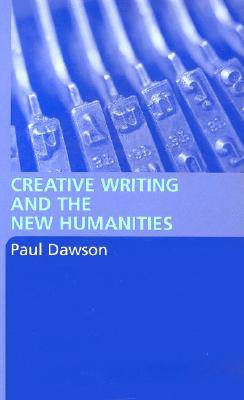
- Afhalen na 1 uur in een winkel met voorraad
- Gratis thuislevering in België vanaf € 30
- Ruim aanbod met 7 miljoen producten
- Afhalen na 1 uur in een winkel met voorraad
- Gratis thuislevering in België vanaf € 30
- Ruim aanbod met 7 miljoen producten
Zoeken
Omschrijving
This book examines the institutional history and disciplinary future of creative writing in the contemporary academy, looking well beyond the perennial questions 'can writing be taught?' and 'should writing be taught?'. Paul Dawson traces the emergence of creative writing alongside the new criticism in American universities; examines the writing workshop in relation to theories of creativity and literary criticism; and analyzes the evolution of creative writing pedagogy alongside and in response to the rise of 'theory' in America, England and Australia. Dawson argues that the discipline of creative writing developed as a series of pedagogic responses to the long-standing 'crisis' in literary studies. His polemical account provides a fresh perspective on the importance of creative writing to the emergence of the 'new humanities' and makes a major contribution to current debates about the role of the writer as public intellectual.
Specificaties
Betrokkenen
- Auteur(s):
- Uitgeverij:
Inhoud
- Aantal bladzijden:
- 264
- Taal:
- Engels
Eigenschappen
- Productcode (EAN):
- 9780415332217
- Verschijningsdatum:
- 9/12/2004
- Uitvoering:
- Paperback
- Formaat:
- Trade paperback (VS)
- Afmetingen:
- 161 mm x 215 mm
- Gewicht:
- 376 g

Alleen bij Standaard Boekhandel
+ 116 punten op je klantenkaart van Standaard Boekhandel
Beoordelingen
We publiceren alleen reviews die voldoen aan de voorwaarden voor reviews. Bekijk onze voorwaarden voor reviews.











